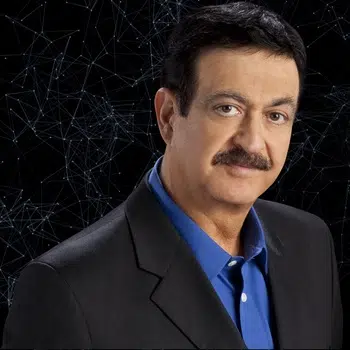SEOUL (Reuters) – South Korean President Yoon Suk Yeol joined U.S. Secretary of State Antony Blinken and other foreign officials this week in calling for measures to counter digital threats to freedom as Seoul hosted the Summit for Democracy.
The event is the third of its kind after U.S. President Joe Biden established the summit in 2021.
WHAT IS THE SUMMIT FOR DEMOCRACY?
The first summit was a fulfilment of one of Biden’s key campaign promises.
It was a first-of-its kind gathering of more than 100 countries to help stop democratic backsliding and erosion of rights and freedoms worldwide.
It was held online due to COVID-19 restrictions.
A second summit was co-hosted in 2022 by the United States, Costa Rica, Zambia, the Netherlands and South Korea, also mostly online.
WHAT IS IT ABOUT?
This year’s summit agenda focused on digital threats to democracy, including misinformation, artificial intelligence, and deep fakes.
“Fake news and disinformation based on artificial intelligence and digital technology not only violates individual freedom and human rights but also threatens democratic systems,” Yoon said at the opening ceremony.
Speaking at a separate session, Blinken said Washington was releasing the first guidance of its kind for tech companies to help prevent attacks on human rights defenders online.
The South Korean hosts also said they planned to use the event to seek ways to encourage youth participation in democracy.
WHO ATTENDED THE SUMMIT?
This year’s event saw senior officials visit Seoul, including Blinken, British Deputy Prime Minister Oliver Dowden, the foreign ministers of Ecuador, Gambia, Indonesia, Guyana, and Mauritius, and other minister-level leaders.
The plenary session on Wednesday will largely be online, however, and will feature participation by Biden, among other national leaders.
Biden angered China when he invited Taiwan to the first summit. The issue caused further controversy that year when U.S. organizers cut a video feed of a Taiwanese minister during the summit after a map in her slide presentation showed Taiwan in a different colour to China, which claims the island as its own.
Over the years the summit has also been dogged by criticism by rights activists who question whether the virtual events can push the invited world leaders, some accused of harbouring authoritarian tendencies, to take meaningful action.
A senior U.S. official involved in the planning of the first summit told Reuters at the time that invitations were sent to countries with different experiences of democracy from all regions of the world.
“This was not about endorsing, ‘You’re a democracy, you are not a democracy,'” the official said.
As the summit opened on Monday, Yoon’s administration denied allegations that it had mobilized government agencies to coerce the media into more favourable coverage.
(Reporting by Josh Smith. Editing by Gerry Doyle)





Comments